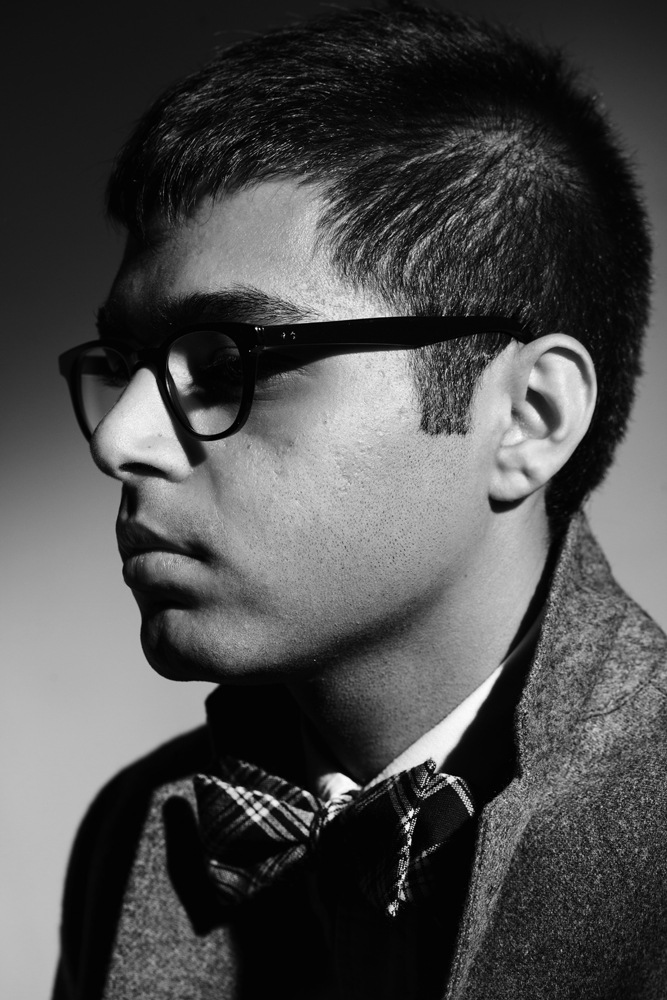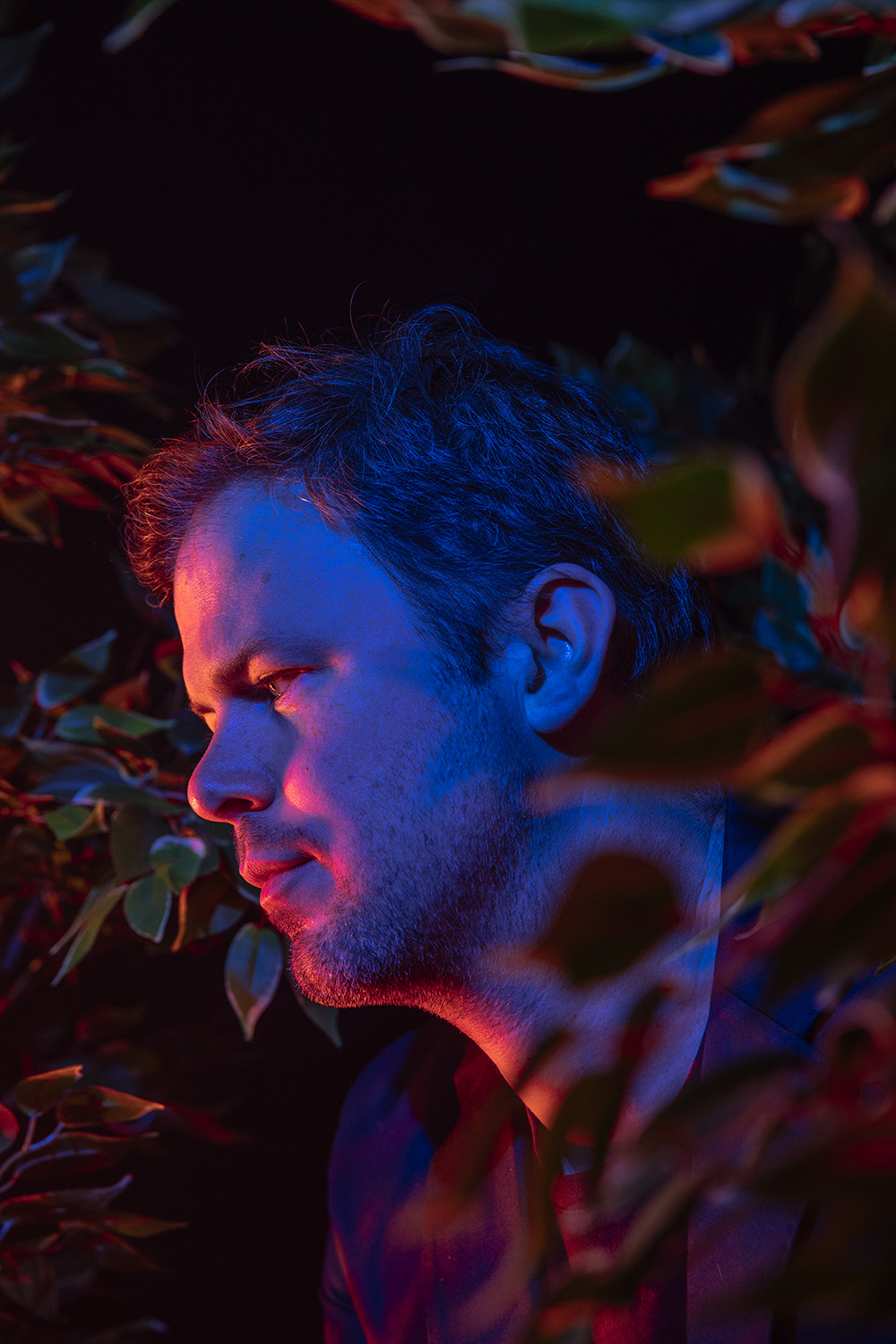Blonde Redhead

Moving from Sonic Youth-like art punk to eclectic pop over the course of their decades-long career, Blonde Redhead remained one of indie rock’s most creative acts. The band formed in 1993 after Japanese art students Kazu Makino and Maki Takahashi randomly met Italian twin brothers Simone and Amedeo Pace at an Italian restaurant in New York. (The name was taken from a song by the ’80s no wave band DNA.) With Makino and Amedeo on guitars and vocals, Simone on drums, and Takahashi on bass, the band’s chaotic, artistic rock caught the attention of Sonic Youth drummer Steve Shelley, who produced and released the band’s debut album, Blonde Redhead, on his Smells Like Records label. Shortly after the album’s release, Takahashi left the band. The remaining members continued as a trio, releasing a second album, La Mia Vita Violenta, on Shelley’s label in 1995. For their 1997 release, Fake Can Be Just as Good, recorded for Touch & Go, the trio was joined by guest bass player Vern Rumsey from Unwound. By 1998, the band eliminated bass and scaled back to guitars, drums, and vocals for In an Expression of the Inexpressible. Melody of Certain Damaged Lemons and the Melodie Citronique EP followed two years later. The band’s first for 4AD, Misery Is a Butterfly, was released in spring 2004. For 2007’s 23, the group opted for a mix of dream pop and delicate electronic textures. Three years later, Blonde Redhead delivered Penny Sparkle, a more stripped-down, even more electronic-leaning set of songs the band recorded in New York and Stockholm with Alan Moulder, Van Rivers, and the Subliminal Kid. In 2014, Blonde Redhead returned with Barragán, featuring production from Drew Brown (Beck, Stephen Malkmus, Radiohead). The band revisited its early days in 2016 with the Numero Group box set Masculin Feminin, which collected Blonde Redhead and La Mia Via Violenta along with demos, singles, and radio performances from that era. That year also saw the release of Freedom of Expression on Barragán Hard, a collection of Barragán remixes including contributions by Deerhoof, Van Rivers, Nosaj Thing, and Connan Mockasin. Blonde Redhead returned with new music in 2017 in the shape of the EP 3 O’Clock, which they released on their own Asa Wa Kuru Records.
Rafiq Bhatia

Rafiq Bhatia official site | Rafiq Bhatia on Twitter | Rafiq Bhatia on Facebook | Rafiq Bhatia on Instagram | Rafiq Bhatia on YouTube
reaking English, the Anti- Records debut of New York composer and guitarist Rafiq Bhatia, seeks to shatter preconceptions about how much can be said without a word—and, for that matter, who can say it. Bhatia’s audacious first album as a producer sets out to challenge existing musical vocabulary with a language of its own.
In 2012, Bhatia issued two improvisation-driven recordings whose surreal sonics “set them miles apart from the vast majority of records by jazz musicians” (New York Times). These releases earned immediate acclaim; the Washington Postobserved, “Instead of haggling over jazz’s traditional perimeters, both recordings employ the sonic language of hip-hop and electronic composition to press toward a more interesting future.” But with his next project, Bhatia felt compelled to find a more personal path forward. For most of his listening life, he’d loved records in which familiar sounds were refashioned into wonderfully alien strains, where iconoclastic ideas met cutting-edge technology to yield a new lexicon. Making music like this would mean reaching beyond his six strings and customarily collaborative approach, especially his reliance on outside producers. To get where he needed to go, he would need to learn how to sculpt sound for himself.
It was during this period of reinvention that Bhatia joined Son Lux, a studio-centered project in which producer Ryan Lott used software to warp found sounds into dazzling electronic experiments. Son Lux afforded Bhatia the chance to record with the likes of Lorde and Sufjan Stevens, but, more important, it gave him the support he needed to develop his voice as a producer—the process that ultimately yielded Breaking English.
The resulting album ruptures the hermetic vernacular of ambient sculpturalism with the emotional intensity of avant-garde jazz, using the techniques of the former to achieve the feeling of the latter. Its language is centered on contrast, with opposing strains juxtaposed in order to throw each other into sharper relief—the organic feels more vibrant in the context of the mechanical, the otherworldly more ethereal in light of the ordinary. Throughout, Bhatia’s guitar is just one part of a teeming, much bigger picture. Tense violin, exhaled gospel vocals, ricocheting drums and foreboding bass also populate Breaking English, all characters in an enveloping piece of musical cinema.
Bhatia is the first-generation American son of Muslim immigrant parents who trace their ancestry to India by way of East Africa. Early influences such as Jimi Hendrix, John Coltrane, and Madlib—as well as mentors and collaborators including Vijay Iyer and Billy Hart—prompted him to see music as a way to actively shape and represent his own identity, not limited by anyone else’s prescribed perspective. Bhatia’s embrace of the electronic realm bolsters his ability to express hybridity. At times, he uses the studio to destabilize, twisting the stereotypes of Indian music he heard as a child into noise beyond recognition. But frequently, he exaggerates the human qualities of the sound he mines, conveying intimacy and tension through elements many producers would scrub clean.
All told, Bhatia seamlessly integrates dozens of different ideas throughout Breaking English. Take the title track, a marvelous chimera of deconstructed soul, where skittering drums dodge explosions of white noise as a detuned choir gasps for air. Trips to the Great Rift Valley of Africa and the mosques of Istanbul inspired the swirl of sculpted noise that begins the album. His horror with the news of these last several American years and his empathy for the Black Lives Matter movement supercharge the menacing “Hoods Up.” A fascination with avant-garde cuisine actually helped to shape “The Overview Effect,” a breathtaking piece that expresses the overwhelming fragility of the Earth as seen from outer space. The contaminated orchestra of “Olduvai II — We Are Humans With Blood In Our Veins” bottles the nightmare of waking up brown in America on November 9, 2016.
From start to finish, Breaking English suggests one very deep breath, one instant capable of carrying so much. Beauty, violence, death, rebirth—it’s all tucked into the two-movement “Perihelion,” an eight-minute descent into the sun that uses distance and perspective to ponder the line where what dazzles us can destroy us, where something so sustaining can turn sinister. That Icarus-like enticement speaks to Breaking English, an album that required an already-accomplished musician to abandon what he knew and test his own limits. That risk rewards repeatedly here, on a record that funnels a universe of anxiety, hope, and inspiration into one singularly provocative and mesmerizing statement.
Anti- Records will release Breaking English on April 6, 2018.
Postdata

Postdata official site | Postdata on Facebook | Postdata on Twitter | Postdata on Instagram
On Let’s Be Wilderness, his new record with revolving-door project Postdata, Paul Murphy explores two conflicting certainties: we will love, and what we love will die. The frontman of beloved Nova Scotia alternative outfit Wintersleep, Murphy has built a circle of collaborators, friends, and family around him for more than a decade. Murphy first released music with Postdata in 2010, a self-titled debut that saw him working with his brother Michael to record a set of songs that dealt with family, legacy, and connection. Now, Postdata returns with Let’s Be Wilderness, a record characterized by those two old bickering friends: love and death.
The 10-track record came together much the same as Murphy’s other projects: through a community of friends and family. A vacation in Europe found Murphy ringing up friends and former tourmates Grant Hutchison and Andy Monaghan (both of Scottish indie rock triumph Frightened Rabbit). It was these meetings with old pals that birthed Let’s Be Wilderness. The cast was rounded out by Murphy’s Wintersleep bandmates Loel Campbell and Tim D’Eon, with additional work from Simone Pace (Blonde Redhead) and production from acclaimed Scottish producer Tony Doogan.
The change might discomfort some, but the rotating cast is part and parcel to Postdata; like all things, it’s never static, nor set in stone. “It can be anything,” Murphy says of Postdata. “It’s not actually really a band. It’s a project that you can work on with different people that you meet as you’re touring. You can build a record that way.”
The result is a work bursting with the sum of its parts. Sharp, succinct electronics and thunderous drums are framed around the earthy lull of Murphy’s resonant tenor, all while his familiar, rootsy acoustics drape across the record like a strand of family-favourite Christmas lights. The contemplative electro-sprawl of “Gravity” gives way to the breathy dreamscape of “Pasture,” a song sewn together from fragments of a recurring dream. “Evil” bursts in with a romping, harmonious gospel stomp, while closer “Windows” is an intimate, candle-light ballad with just Murphy and his guitar. For all the record’s trials, it parts with a gentle declaration: “I won’t walk away from you now,” Murphy says gently.
It becomes clear that a sort of manifest destiny threads through Let’s Be Wilderness. As Murphy wrestles with the pendulum-swing of hope and despair, pondering what will become of the two, he’s created an analogue for those theoretical queries: a transient project created from community, rooted in empathy, guided by love.

